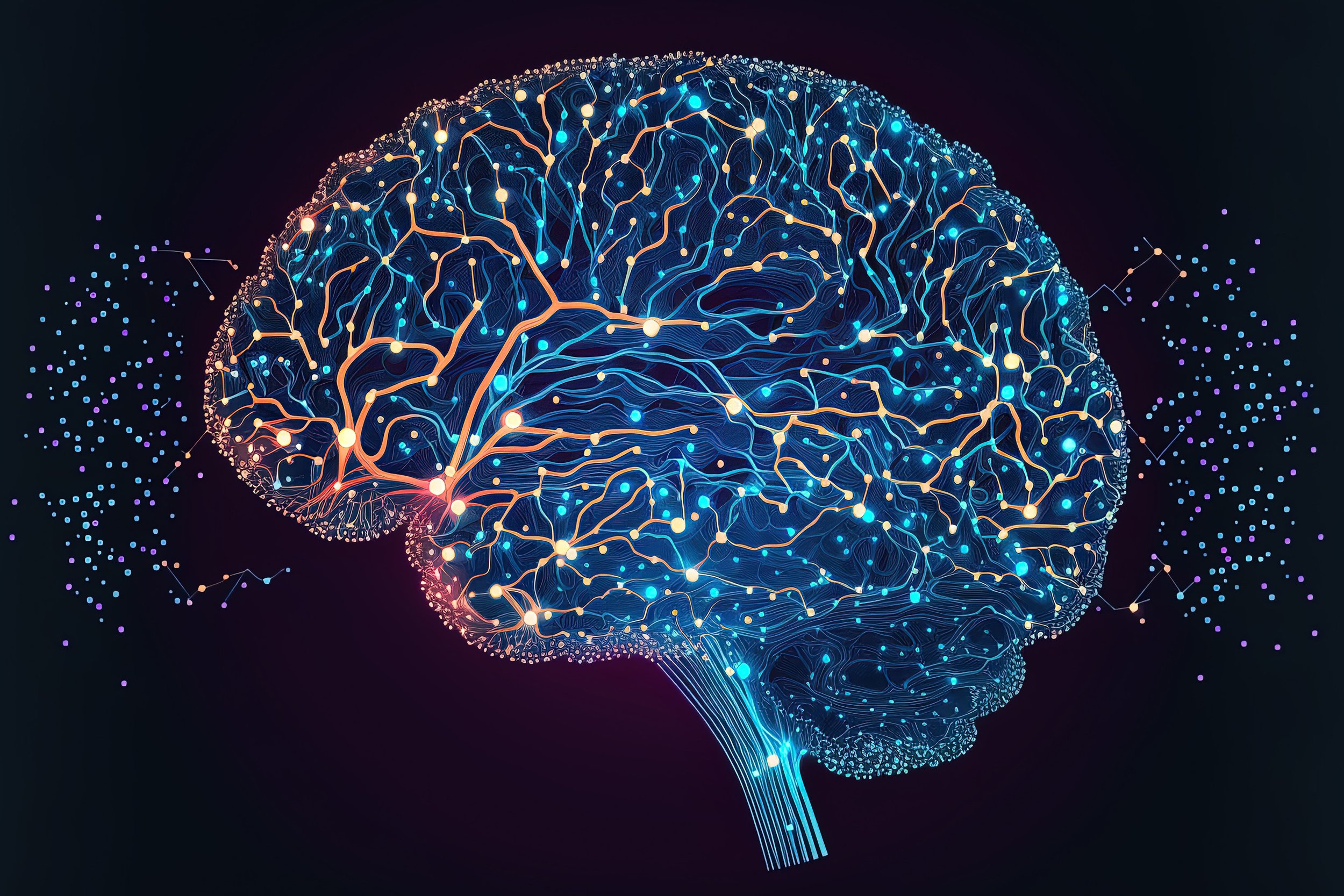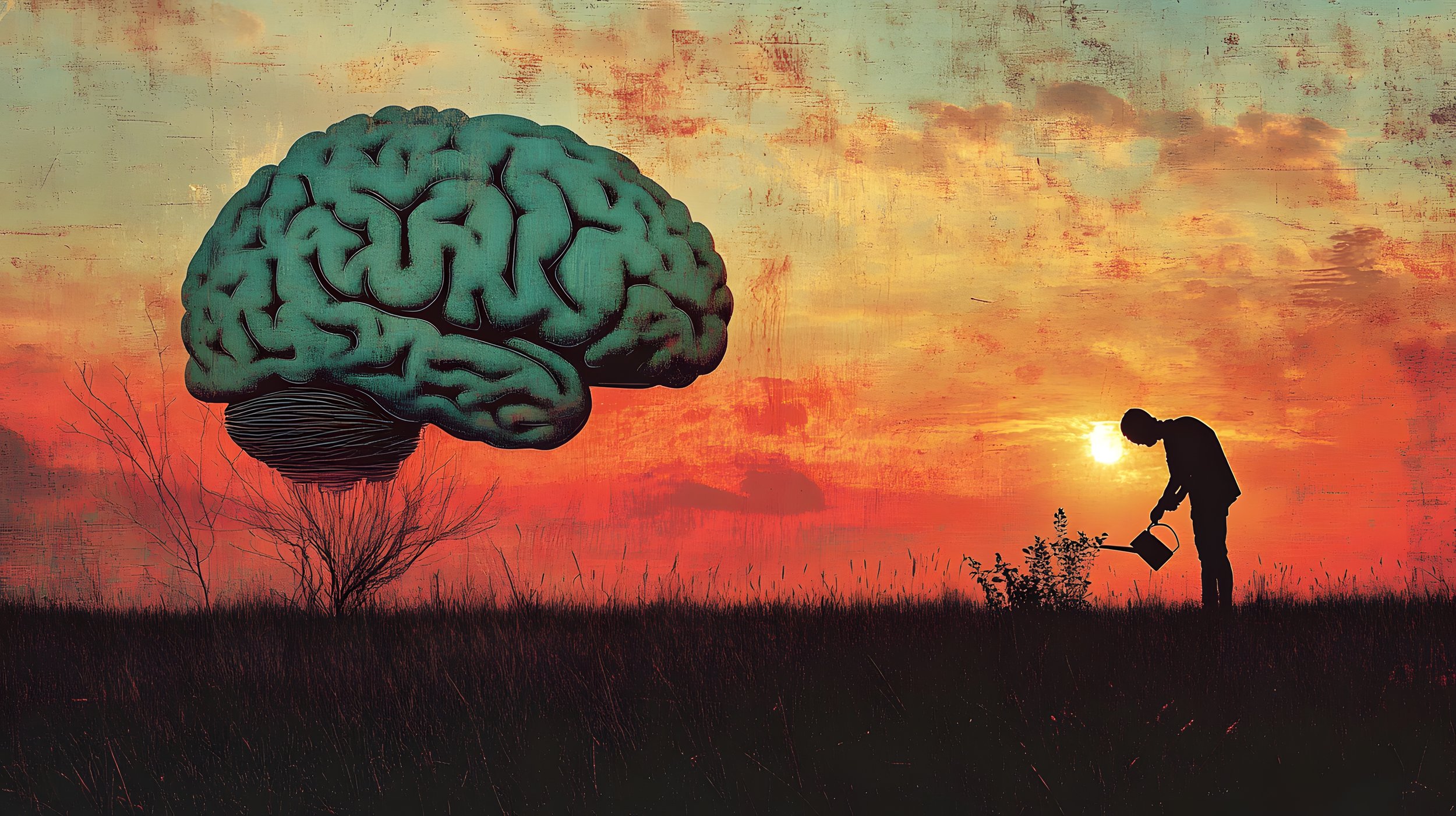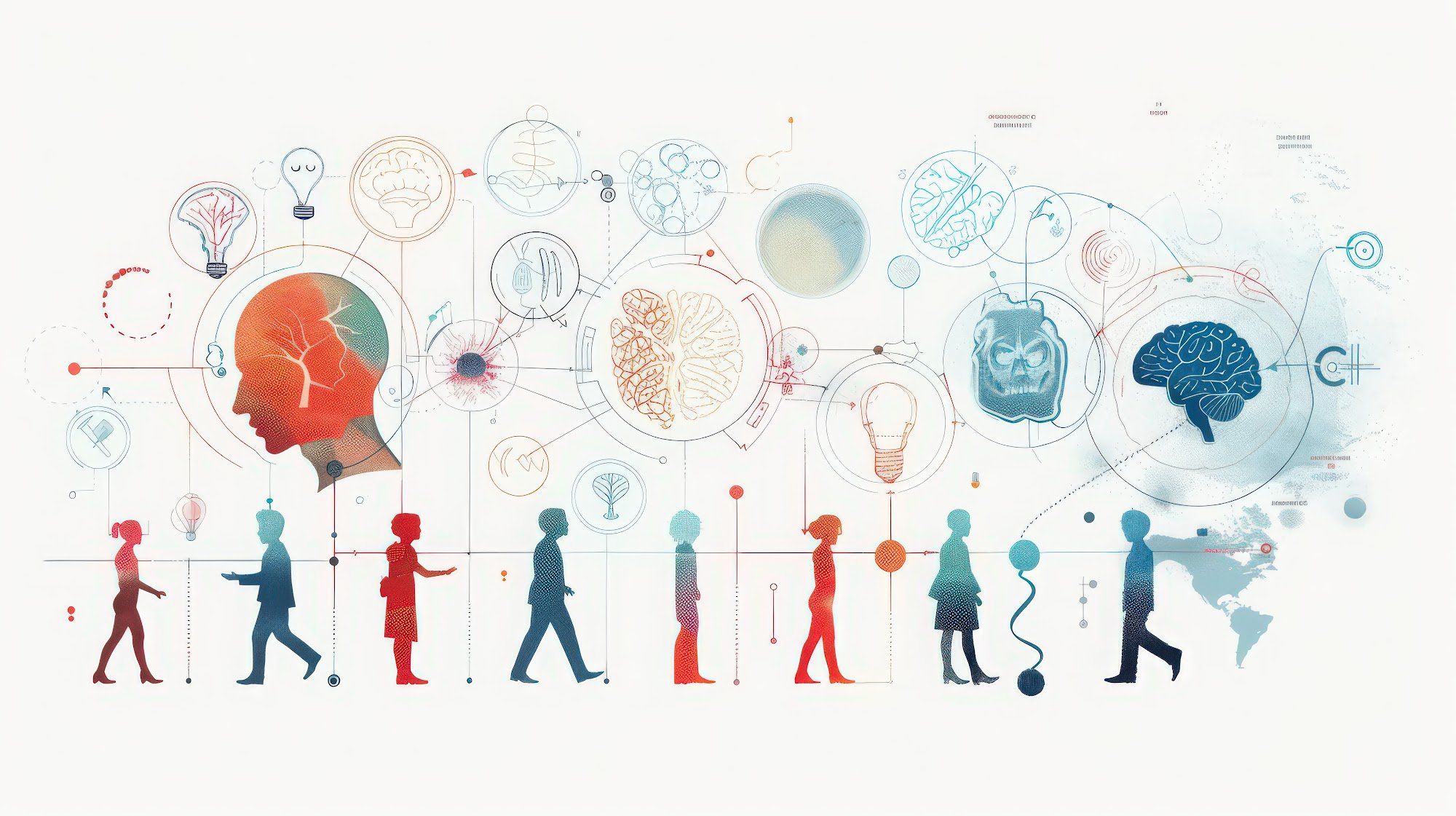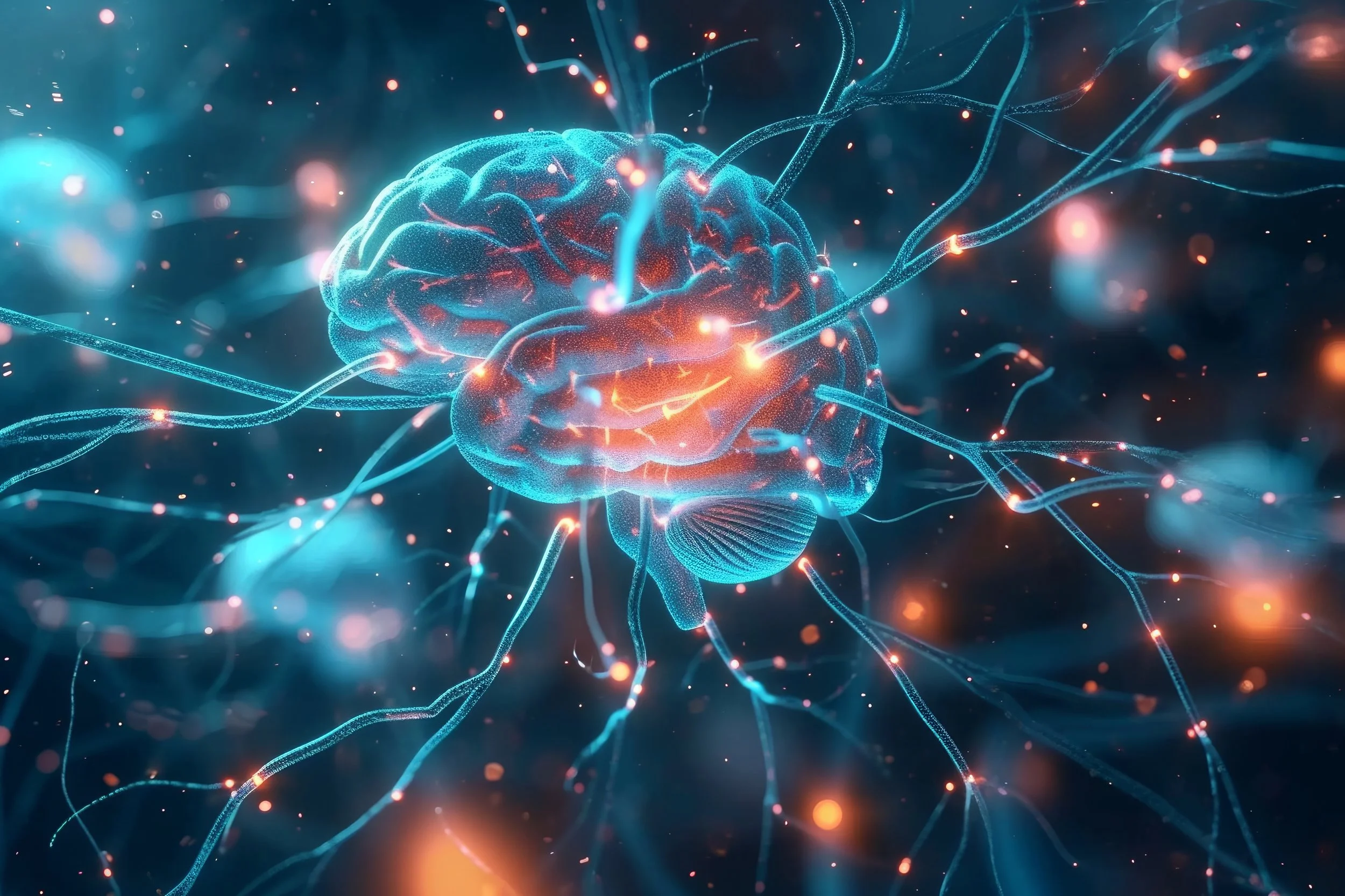
Brain Health Care Clinic
Dr Tamara Fischl - Neuropsychiatrist

“From the brain, and from the brain only, arise our pleasures, joys, laughter and jests, as well as our sorrows, pains, griefs and tears.”
- Hippocrates
Where Psychiatry and Neurology Meet
-
Neuropsychiatry is a medical field that focuses on the relationship between the brain and mental health. It is concerned with how neurological conditions—such as epilepsy, Parkinson’s disease, multiple sclerosis, dementia, stroke, or brain injury—can affect mood, behavior, emotions, and thinking. In many of these conditions, psychiatric symptoms such as depression, anxiety, psychosis, or changes in personality and cognition are directly related to changes in brain function. Neuropsychiatry aims to understand and treat these symptoms in the context of the underlying neurological disorder.
This specialty bridges the gap between neurology and psychiatry, offering a comprehensive approach to assessment and treatment. Rather than separating mental and physical health, neuropsychiatry views them as deeply connected. It is especially useful when psychiatric symptoms are new, complex, resistant to standard treatment, or appear alongside known neurological illness. The goal is to improve quality of life by carefully identifying the cause of symptoms and offering treatment that takes into account the broader medical and neurological picture.
-
No, actually the medical field of neuropsychiatry goes as far back as the 19th century when doctors studying brain disorders worked under a single discipline. However an understanding that brain conditions can present with psychiatric symptoms dates as far back as Hippocrates (several thousands of years ago) who observed the close connection between epilepsy and depression. Several millennia later (19th century ) early neurologists and psychiatrists explored how conditions like epilepsy, multiple sclerosis , stroke and brain injuries affected both movement and emotions, thinking, and behavior. Many mental illnesses were believed to have a biological basis, and both fields worked together to understand the brain’s role in psychiatric conditions.
However, by the late 19th and early 20th centuries, neurology and psychiatry became separate fields—not just because of the types of patients they treated, but because they developed different ways of understanding illness.
Neurology focused on finding a clear biological cause for symptoms—such as damage to brain tissue, abnormal electrical activity (as in epilepsy), or nerve dysfunction (as in multiple sclerosis or Parkinson’s disease).
Psychiatry focused on diagnosing conditions based on a patient's thoughts, emotions, and behaviors rather than visible physical causes. Many mental illnesses, like depression, schizophrenia, and bipolar disorder, were classified based on subjective symptoms, rather than physical examination or medical investigations.
This led to the idea that neurology treats the "brain," while psychiatry treats the "mind." But modern science has shown that the brain and mind cannot be separated resulting in a revival of Neuropsychiatry as a medical field.
-
A neuropsychiatrist is a medical doctor who has trained in psychiatry and specializes in the relationship between brain function and behavior.
Neuropsychiatrists are experts on how neurological conditions can lead to psychiatric symptoms and how psychiatric disorders may have neurological symptoms . Their expertise is crucial for diagnosing and managing disorders where brain dysfunction and mental health intersect.
About Me
I was born and grew up in Sydney, Australia, I completed a double degree in Medicine and Medical Science at the University of NSW in Sydney (1988-1995) and completed psychiatry residency training at the Shalvata Medical Center in Israel (2000-2006). I have focused on medical psychiatry for almost two decades with a particular interest in neurological disorders.
My expertise is the neuropsychiatry of complex brain disorders in particular epilepsy, multiple sclerosis, stroke, traumatic brain injury, Parkinson’s and other conditions all of which present with both neurological , psychiatric symptoms but also with other physical symptoms. I ran Israel’s only Neuropsychiatry of Multiple Sclerosis Clinic and set up Israel’s first and only Neuropsychiatry of Adolescent Epilepsy Clinic at Sheba Medical Center and Safra hospital respectively. I recently left my position as head of the Medical Psychiatry department at Assaf-Harofeh hospital to set up the Brain Health Care Clinic MD located at the Israel Stroke Centre in Tel Aviv, a multidisciplinary clinic primarily for stroke but also other neurological disorders.
At the Brain Health Care Clinic, I conduct a thorough assessment of your neurological condition, how it affects mood, behavior and cognition whilst still considering your lived experience and its impact on physical function, daily life, work, relationships , identity and overall quality of life and well-being.
LANGUAGES SPOKEN: NATIVE ENGLISH & FLUENT HEBREW
When should I see a neuropsychiatrist rather than a psychiatrist?
If you have an established or suspected neurological disorder that presents with psychiatric symptoms (mood changes anxiety, behavior, cognition, or thinking) then you should consider a neuropsychiatric assessment. A general psychiatrist will most likely focus on the emotional impact of your illness - and its importance should not be underestimated. However, not all psychiatric symptoms are a result of difficulty coping and they are often part of the neurological illness itself or even a side effect due to your medication. A neuropsychiatric assessment takes all of these aspects into account, ensuring an accurate diagnosis and treatment.
I offer the following services:
1. Neuropsychiatric diagnostic assessment and a broad based treatment plan for complex neurological (and other physical) conditions.
2. Expert opinion for people with complex neurological and other physical conditions:
Disability benefits and workers' compensation claims
Competence assessment to write a will / consent to a medical procedure
Guardianship appointment

“I always want to address the person as much as the disease... I somehow sit between the biology and the humanist point of view.”
- Oliver Sacks
Conditions I treat:
-
Epilepsy is a neurological condition in which the brain produces sudden bursts of electrical activity, leading to seizures. Seizures can vary widely in type and severity—ranging from brief moments of staring or confusion to convulsions and loss of consciousness. Some people experience warning signs before a seizure, such as unusual sensations, emotions, or smells, while others may have no warning at all. Epilepsy can begin at any age and may have many different causes, including genetic factors, brain injury, or structural brain changes.
Although epilepsy is often thought of as a seizure disorder, it is increasingly recognized as a condition that can also affect mood, behavior, cognition, and quality of life. Many people living with epilepsy experience depression, anxiety, irritability, or emotional instability. These symptoms may occur independently, as part of the seizure disorder itself, or in reaction to its impact on daily life. Cognitive difficulties—such as problems with attention, memory, or processing speed—are also common and may be related to the underlying brain condition, seizure activity, or the effects of medications.
A neuropsychiatric assessment is especially helpful when someone with epilepsy is also experiencing emotional, behavioral, or cognitive changes. These symptoms may fluctuate over time, worsen with stress or illness, or appear in relation to seizure patterns. Some symptoms occur around the time of seizures (periictal), while others may persist between seizures (interictal), or emerge unexpectedly when seizures improve or stop altogether (paraictal). In some cases, psychiatric symptoms may even be the first sign of seizure activity.
A neuropsychiatric approach focuses on identifying the pattern and cause of symptoms, their relationship to the seizure itself whilst taking into account the type of epilepsy, neurological findings, medication side effects, and broader life context. This helps to avoid misdiagnosis, unnecessary psychiatric labels, or inappropriate medication. Psychiatric treatments are used carefully, considering how they may interact with seizure control. In many cases, subtle changes in treatment can significantly improve both mental health and overall stability.
What about Non-Epileptic Seizures (pseudo seizure) in People with Epilepsy?
Not all seizures in people with epilepsy are caused by abnormal electrical activity in the brain. In fact, up to 10–30% of individuals with epilepsy also experience non-epileptic seizures, which can resemble epileptic events but have different underlying causes. These are often referred to as dissociative seizures or psychogenic non-epileptic seizures (PNES), though the term pseudoseizures is now discouraged due to its stigmatizing tone.
In individuals who already have epilepsy, non-epileptic seizures are often under-recognized or misdiagnosed as breakthrough seizures. Unlike cases where dissociative seizures occur without epilepsy—often linked to psychological trauma—those occurring alongside epilepsy are not always trauma-related. They may be triggered by a range of factors, including emotional distress, sleep disruption, or may in fact be similar to a panic attack but with less physical symptoms and predominant feeling of detachment. These episodes may occur in specific settings, often without EEG evidence of a seizure, and may follow a different pattern than the person’s typical epileptic seizures; however often they are very difficult to differentiate from epileptic seizures.
A neuropsychiatric assessment can help to distinguish between epileptic and non-epileptic events by reviewing the semiology, timing, emotional context, and neurological findings. Video EEG monitoring is the gold standard for diagnosing non epileptic seizures. However only if the seizure in question appears during monitoring. A normal EEG does not rule out an epileptic seizure. On the other hand, it is not uncommon for EEG findings to be misinterpreted as seizures. This distinction is crucial for appropriate management and can often be very complex . For that reason it is highly recommended to be seen by an epileptologist , and neurologist that specializes in epilepsy. Misdiagnosis can either lead to over treatment or unnecessary medication changes. Management typically involves psychoeducation, behavioural intervention, at times medication for concurrent symptoms of anxiety and depression or referral for psychological therapy focused on emotional regulation and stress response. Clarifying the diagnosis , in and of itself, often helps reduce the frequency of events and improves quality of life for both the person and their support network.
-
Iatrogenic psychiatric symptoms refer to mental health changes caused by medical treatments, including medications commonly used for neurological conditions. Many drugs used to treat epilepsy, Parkinson’s disease, multiple sclerosis, and other disorders can have psychiatric side effects, ranging from mood disturbances to psychosis.
For example some anti-seizure medications may induce depression, anxiety, or even psychotic symptoms and suicidal thoughts. Often people assume it's because of their difficulty coping with a diagnosis of epilepsy . Whilst this might be true , it is now widely accepted that these symptoms are frequently part of the seizure disorder or the treatment. Identifying the cause is important in order to choose the appropriate treatment. Similarly medications used in Parkinson’s disease can lead to hallucinations or even impulse control disorders such as compulsive gambling, shopping . Steroids, often prescribed for autoimmune neurological disorders ( Multiple Sclerosis , Lupus ) can trigger mood swings, mania, or severe agitation. Recognizing and managing these iatrogenic effects is essential in balancing the treatment of neurological conditions while preserving mental health.
-
Adults on the autistic spectrum may struggle with sudden behavioral or emotional changes that are often misunderstood or misdiagnosed. In late adolescence and early adulthood, challenges such as changes in routine, overstimulation, health issues, or life stressors can trigger anxiety, irritability, or social withdrawal. Communication differences may make it hard for autistic individuals to express distress, and these behaviors are sometimes mistaken for psychiatric disorders without recognizing the neurological causes such as seizures which are not uncommon in individuals on the spectrum.
At the Brain Health Care Clinic every person’s unique communication style, sensory profile is respected . Collaboration with families, caregivers, and referring professionals help to understand what may be driving behavioral changes and to avoid unnecessary or harmful treatments. Medications are prescribed cautiously ,using the lowest effective doses and avoiding use of multiple medications where necessary so as to reduce the risk of adverse side effects.
-
Adults with intellectual disability are often vulnerable to psychiatric side effects from medications prescribed for mood, behavior, or neurological conditions. They may also show behavioral changes—such as aggression, withdrawal, agitation, or a loss of skills—in response to physical illness, pain, environmental stress, or mental health issues. These presentations are complex and require careful assessment to avoid misdiagnosis and overtreatment.
The neuropsychiatric assessment focuses identifying the medical, neurological, or psychiatric causes behind new or worsening behaviors. Non-drug approaches are adopted when possible with attention to consistency, structure, and environmental support. If medication is considered necessary, medication is commenced at very low doses and polypharmacy is avoided , recognizing the increased sensitivity of this population to psychiatric and neurological side effects. Treatment is always guided by respect, experience, and a commitment to safety and quality of life.
-
Multiple Sclerosis (MS) is a condition that affects the brain and spinal cord, causing a wide range of symptoms. It occurs when the immune system mistakenly attacks the protective covering of nerve fibers (called myelin), leading to inflammation and damage. This disrupts the signals between the brain and the rest of the body, resulting in symptoms such as muscle weakness, balance problems, fatigue, vision changes, and cognitive difficulties. MS varies from person to person—some experience periods of symptoms followed by recovery (relapsing-remitting MS), while others have a gradual worsening of symptoms over time. Fortunately, there has been enormous progress in the development of multiple medications for MS, including disease-modifying treatments that help slow progression and reduce relapses, significantly improving long-term outcomes.
MS is associated with a high prevalence of depression, anxiety, and cognitive difficulties, and these mental health issues are multifactorial. They are influenced by inflammatory processes in the brain, the number and location of plaques, medication side effects, and the overall burden of disability. Inflammation and demyelination can directly affect brain regions involved in mood regulation and cognition, leading to symptoms such as memory problems, difficulty concentrating, and emotional changes. Additionally, the challenges of living with a chronic, unpredictable illness—along with physical symptoms like fatigue and pain—can contribute to psychological distress. Understanding these contributing factors is essential for providing comprehensive care that addresses both neurological and mental health needs.
Some treatments for MS, such as steroids used to manage relapses, can have psychiatric side effects. Around 20% of people experience mood changes, ranging from mild euphoria to more serious effects, including severe mood swings, suicidal thoughts, and disordered thinking. Fortunately, these symptoms can be well managed, and the most important step is ensuring that patients and their families are aware of these potential side effects before starting steroids. By recognizing symptoms early, doctors can adjust treatment or provide supportive care, ensuring both physical and mental well-being are addressed in MS management.
-
Migraines are a common neurological disorder, affecting approximately 10–15% of the population. They often begin in adolescence or early adulthood and tend to run in families, suggesting a genetic predisposition. Unlike typical headaches, migraines involve recurrent episodes of moderate to severe head pain, usually on one side of the head, and are often accompanied by nausea, vomiting, and sensitivity to light and sound. Some individuals experience aura—temporary neurological symptoms such as visual disturbances or tingling sensations—before the onset of headache pain.
Accurate diagnosis is crucial, as migraines can be mistaken for other headache syndromes, such as tension-type headaches or cluster headaches. Misdiagnosis can lead to ineffective treatment and unnecessary suffering. A multidisciplinary approach is often the most effective way to manage migraines, combining medication (both preventive and acute treatments), lifestyle modifications, and psychological support. Identifying and avoiding triggers, such as stress, poor sleep, and certain foods, plays a key role in reducing attack frequency.
Migraines have a significant impact on mental health. They are strongly associated with an increased risk of depression and anxiety, partly due to the unpredictability and disabling nature of attacks. Chronic migraines, in particular, can lead to frustration, social isolation, and difficulties maintaining employment. Additionally, individuals with migraines may be at higher risk of medication-overuse headaches, further complicating their condition.
Effective migraine treatment extends beyond medication and psychological support. Lifestyle factors play a crucial role in prevention and management. Maintaining good sleep hygiene, engaging in regular physical activity, reducing alcohol consumption, and avoiding other negative health behaviors can significantly improve migraine control. Stress management techniques, such as mindfulness and relaxation exercises, may also help reduce attack frequency. A comprehensive treatment plan that integrates medical, psychological, and lifestyle interventions offers the best chance of minimizing the burden of migraines.
-
Traumatic Brain Injury (TBI) occurs when a sudden force damages the brain, and loss of consciousness is not necessary for an injury to develop. Even a mild TBI, sometimes called post-concussion syndrome, can cause lasting symptoms, and minimal brain injury frequently occurs from whiplash alone, without a direct blow to the head of loss of consciousness. TBIs can result from falls, car accidents, sports injuries, or other impacts. Depending on the severity, symptoms may include headaches, dizziness, balance problems, tinnitus (ringing in the ears), changes in sense of smell, visual disturbances, and memory difficulties. While some people recover quickly, others experience ongoing cognitive and emotional challenges that interfere with daily life.
Mental health symptoms after a TBI can be complex and often overlap with PTSD, making an accurate neuropsychiatric assessment essential. Both TBI and PTSD can cause mood changes, irritability, anger outbursts, sleep disturbances, and difficulty concentrating, making it difficult to distinguish between them. Additionally, opioid-based pain medications, often prescribed after injury, can contribute to mood instability, cognitive fog, and even dependency, further complicating diagnosis. Since TBI affects brain regions responsible for mood, attention, and memory, individuals may experience depression, anxiety, emotional instability, and cognitive slowing.
Timely diagnosis of TBI is crucial, as early intervention with cognitive training and rehabilitation can significantly reduce long-term cognitive deficits. Left untreated, persistent symptoms can affect relationships, work, and overall quality of life. A comprehensive assessment by a neuropsychiatrist can help clarify whether symptoms are due to brain injury, PTSD, medication effects, or a combination of factors, allowing for targeted treatment that supports both brain function and mental well-being.
-
Limbic encephalitis is a form of brain inflammation that affects areas responsible for memory, emotion, and behavior—particularly the limbic system. It is now recognized as an important cause of sudden psychiatric and cognitive changes, but this is a relatively recent development in neurology and psychiatry. In the past, many individuals with limbic encephalitis were misdiagnosed as having a first episode of psychosis or schizophrenia because their symptoms often began with paranoia, hallucinations, severe mood swings, or unusual behavior, sometimes with no obvious neurological signs at first.
The condition can develop rapidly over days or weeks and may also cause memory loss, confusion, seizures, or fluctuating levels of awareness. It may be caused by an autoimmune response—either on its own or as a reaction to an underlying tumor—or by a viral infection. Diagnosis requires a high index of suspicion, along with specialized testing such as brain imaging, EEG, blood and spinal fluid tests, and screening for autoantibodies.
Due to the acute onset of symptoms and often disturbed level of consciousness patients often present to the Emergency Department. Early recognition is essential, as the condition is often treatable—typically with immune therapies such as corticosteroids, intravenous immunoglobulin (IVIG), or plasma exchange, and, when needed, treatment of an associated tumor. Recovery may be gradual, and ongoing psychiatric symptoms such as anxiety, psychosis, or emotional instability may persist even after the inflammation is controlled. Some people will have residual psychiatric symptoms that should be managed cautiously. During the acute phase the psychiatric symptoms are less responsive to psychiatric medications. Follow up after the acute presentation and possible period of rehabilitation should include supporting the patient and their family after what is often described as a very confusing and even traumatic experience.
-
A stroke occurs when blood flow to the brain is disrupted, either due to a blockage in a blood vessel (ischemic stroke) or bleeding in the brain (hemorrhagic stroke). This lack of oxygen and nutrients can cause brain cells to die, leading to various physical and cognitive impairments. The effects of a stroke depend on the area of the brain affected and the severity of the event. Common physical consequences include weakness or paralysis, speech difficulties, and problems with coordination. Stroke survivors often require rehabilitation to regain lost functions, and the long-term outlook varies widely among individuals.
Beyond its physical impact, stroke has profound effects on mental health. Depression is common, occurring early after a stroke due to both brain changes and the emotional toll of the event. Later on, some individuals may develop persistent depressive symptoms, often linked to ongoing disability and reduced independence. Apathy, characterized by a lack of motivation and emotional responsiveness, is another frequent complication, particularly when strokes affect certain areas of the brain involved in motivation and drive. In some cases, individuals may experience mood changes such as late-onset mania, where periods of heightened energy, euphoria, or impulsivity emerge later in life. These symptoms may be related to stroke-induced changes in brain chemistry and structure. Addressing these mental health concerns is crucial for optimizing recovery and quality of life after a stroke.
-
Parkinson’s disease is a chronic neurological condition that affects movement as well as many other aspects of health. While it is commonly recognized for its motor symptoms—such as tremor, stiffness, slowness, and imbalance—there is increasing recognition of the equally important non-motor symptoms that can significantly affect sense of smell, sleep, mood, behavior, and thinking.
Motor symptoms of Parkinson’s include tremors at rest, slowed movements (bradykinesia), rigidity, and balance problems that may lead to falls. As the disease progresses, patients may experience difficulty initiating movement, changes in facial expression, and speech or swallowing difficulties. These physical changes can lead to frustration, social withdrawal, and emotional strain. In some cases, medications used to manage motor symptoms may themselves produce behavioral side effects such as impulsivity, mood swings and even visual hallucinations.
Non-motor symptoms are often more disabling than the motor symptoms and may include depression, anxiety, apathy, irritability, and sleep disturbances. Cognitive symptoms such as slowed thinking, memory changes, or difficulties with planning and attention are common, and some individuals may develop hallucinations or delusions, particularly in later stages or in response to medications. These psychiatric symptoms may fluctuate and often emerge or worsen under stress, illness, or medication changes.
At the Brain Health Care Clinic, the full spectrum of symptoms, motor and non-motor are assessed. Close coordination with neurologists, occupational therapists and physiotherapists is crucial to the holistic management of Parkinson's disease.
-
Dementia is a term used to describe a progressive decline in thinking abilities that interferes with daily life. This may include difficulties with memory, language, judgment, planning, or changes in personality and behavior. When dementia symptoms begin beforeררומטולוגטכ כל age 65, it is called early-onset dementia. It is less common than dementia in older adults, but often more disruptive, as it affects people who may still be working, raising children, or living independently. Because memory loss is not always the first symptom, early-onset dementia is frequently misdiagnosed as a psychiatric condition such as depression, anxiety, or a personality disorder.
There are several types of early-onset dementia. One of the most common is frontotemporal dementia (FTD), which typically begins with changes in behavior, personality, or language rather than memory. People with FTD may become socially withdrawn, impulsive, emotionally blunted, or lose the ability to speak or understand language. Another form is Lewy body dementia, which often causes visual hallucinations, fluctuations in alertness, movement symptoms similar to Parkinson’s disease, and increased sensitivity to psychiatric medications. Huntington’s disease is a genetic condition that can also cause early dementia, often accompanied by involuntary movements (chorea), mood disturbances, and changes in thinking and behavior.
Assessment involves understanding the full range of symptoms, how they’ve developed, and whether there are other medical, neurological, or psychiatric factors at play. In clinical care, I focus on clarifying the diagnosis, supporting both the person and their family, and managing behavioral or psychiatric symptoms with the least amount of medication necessary. Special care is taken to avoid treatments that may worsen cognition or cause agitation, particularly in conditions like Lewy body dementia, where sensitivity to medication is high. Guidance and support are also provided for long-term planning and adjustment to the illness.
-
Dementia is a clinical term used to describe a decline in cognitive abilities that interferes with daily functioning. It often affects memory, language, attention, problem-solving, and the ability to manage everyday tasks. In addition to cognitive symptoms, dementia frequently involves changes in mood, personality, and behavior. These changes may develop gradually but can also worsen suddenly due to physical illness, medication effects, or environmental stress.
There are several different types of dementia. Alzheimer’s disease is the most common and is typically marked by progressive memory loss. Vascular dementia often occurs after strokes or in the context of chronic cardiovascular disease and may affect attention, planning, or mood more than memory. Lewy body dementia and Parkinson’s disease dementia often include hallucinations, fluctuations in alertness, and motor symptoms. Frontotemporal dementia, more common before age 65, may begin with personality changes or language difficulties. When assessing patients, I consider not only the type and stage of dementia but also the contribution of treatable factors such as pain, infections, or medication side effects.
Management focuses on reducing distress and improving quality of life. Behavioral symptoms are approached thoughtfully, with an emphasis on environmental strategies and careful, minimal use of psychiatric medications when needed. Special attention is given to minimizing side effects such as confusion or sedation. I also work closely with family members and caregivers to offer education, practical strategies, and guidance throughout the course of the illness.
Upcoming Services:
Special transition service for young people (17+) with epilepsy and their families
Brain wellness program

“The brain is the ultimate storyteller, weaving together our past, present, and future in the tapestry of our lives.”
- Eric Kandel




